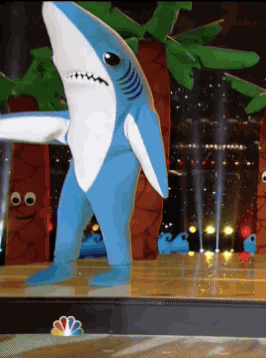Sports
Bill Belichick made a sneaky-smart decision that might have contributed to fateful play call by Pete Carroll
On the NFL
Share via Email
Comments 270
By
Adam Kilgore February 2 at 12:19 PM
last-minute play call Sunday night will be dissected, debated and mocked for as long they play Super Bowls. It might have been prodded by a sneaky-brilliant decision by Bill Belichick.
With 1 minute, 6 seconds seconds left and the Seahawks down by four points, Marshawn Lynch rumbled to the 1-yard line on first down. The Patriots possessed two timeouts, and the Seahawks had one left. The clock ticked down, and at first it appeared odd for Belichick not to exhaust one of his timeouts. With the Seahawks on the doorstep, New England needed to conserve seconds for a desperation drive in response.
[
More on the call: Carroll takes the blame | One play changes NFL history]
Belichick’s choice to not use a timeout, though, made life more difficult for the Seahawks by complicating their play-calling options. It may have even convinced them to throw their ill-fated pass on second down.
Carroll, Wilson talk Super Bowl losing play(1:56)
The Patriots survived a last-ditch drive by the Seahawks. Rookie Malcolm Butler stepped in front of Ricardo Lockette and picked off Russell Wilson’s off-target pass to complete one of the wildest Super Bowl finishes. (AP)
Imagine Belichick had called a timeout in hopes of saving seconds for Tom Brady. The Seahawks would have had enough time to hand off the ball three times without fear of the clock running out, particularly because they had a timeout of their own.
[Read: Best of Super Bowl 2015]
But with Belichick allowing the clock to tick, Seattle’s calculus became more complex, especially as they used almost the entire play clock. They did not snap the ball until there were 26 seconds left in the game. If Seattle ran on second down and the Patriots stuffed them, the Seahawks would have needed to use their final timeout immediately, with about 20 seconds remaining.
The situation would have dictated their ensuing third down. The Seahawks would have no choice but to pass, or else they would have risked the clock running out on their season. The Patriots would have known this, too, which would have made the play far easier to defend. On a potential fourth down, the Seahawks would have had their entire playbook at their disposal.
Patriots beat Seahawks for fourth Super Bowl title(3:08)
After a stunning end to Super Bowl XLIX, Tom Brady and the New England Patriots beat the Seattle Seahawks to win their fourth NFL championship. The Post's Des Bieler and Neil Greenberg discuss what went wrong for the Seahawks and why the Patriots are one of the NFL's best teams of all time. (Jayne W. Orenstein and Kyle Barss/The Washington Post)
It’s possible, if not likely, that Carroll passed on second down because he didn’t want to be in a position where the Patriots knew they would pass on third down. And that reality arose because Belichick kept his timeouts holstered.
Belichick would have known that Carroll didn’t want to box himself in on a possible third down, which is how the Patriots could have anticipated that second-down pass that Malcolm Butler intercepted to ice the game. Even with the ball on the goal line, the Patriots used three cornerbacks on the field. The third? Butler.
It should be noted that the Seahawks’ suboptimal clock management contributed to their downfall. After Jermaine Kearse’s circus catch set up Seattle with a first-and-goal at the 5, the Seahawks burned their second timeout because they didn’t get a play to Wilson quickly enough. That timeout could have made Belichick not calling one moot. And as noted above, the Seahawks took too long after Lynch’s first-down run.
Anyone could still argue
the Seahawks should have relied on their strengthand given the ball to Lynch or let Russell Wilson run a zone-read play at the 1. Studying all of the permutations of the clock could be overthinking it. But as you rip Carroll for not running the ball at the goal line, credit Belichick for making him have to consider it, for making a tiny decision that had an enormous impact.
http://www.washingtonpost.com/news/...ributed-to-fateful-play-call-by-pete-carroll/
##
Sorry, but every way you look at this it was a boneheaded decision by Pete Carroll to call that pass play in that situation. If he had to call a pass, call a pass out wide and not where there's a scintilla of a chance it could be intercepted.
But the obvious call was a running play, either the beast up the gut or a read option for Wilson. With the timeout in hand and the beast in beast mode, you give it to The Beast.










 Manziel
Manziel



